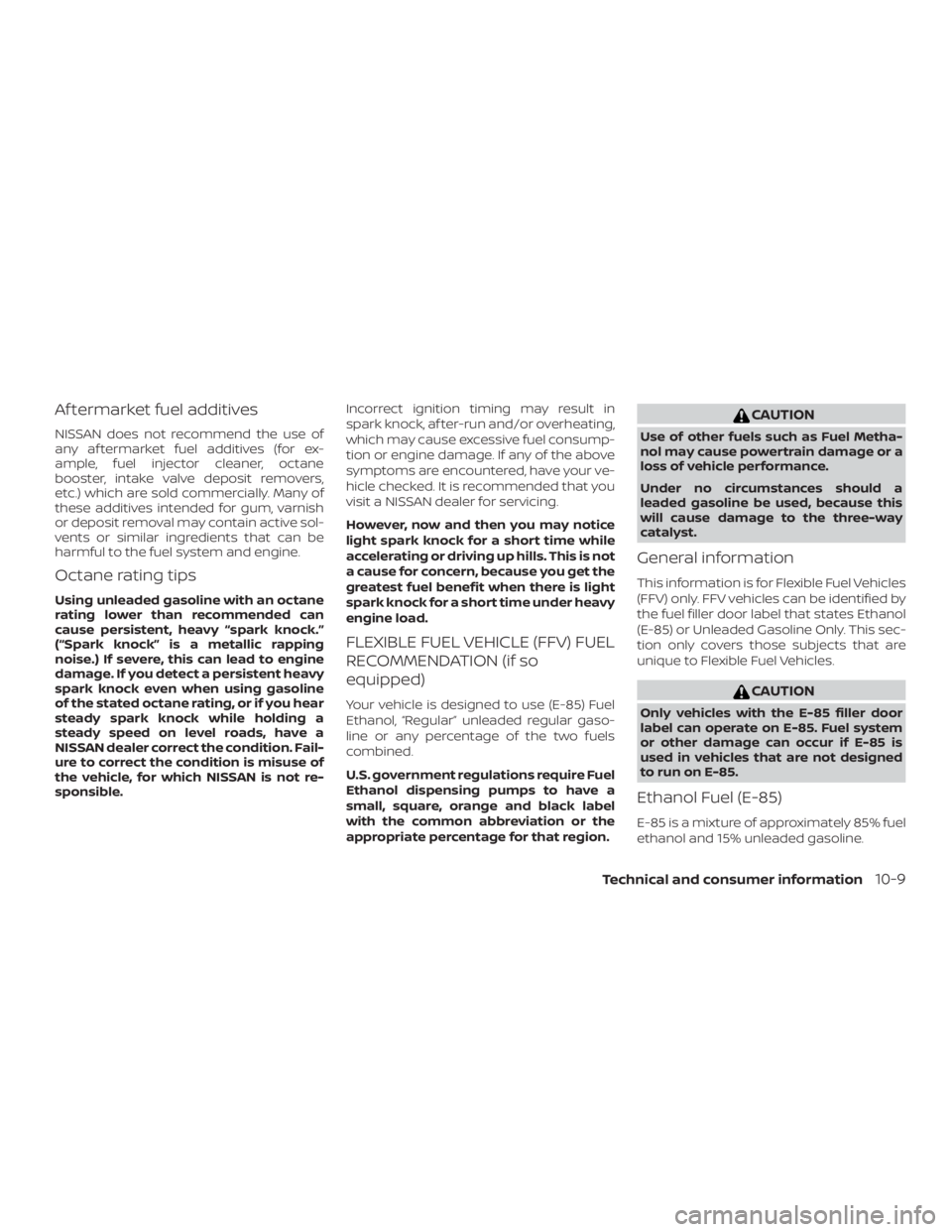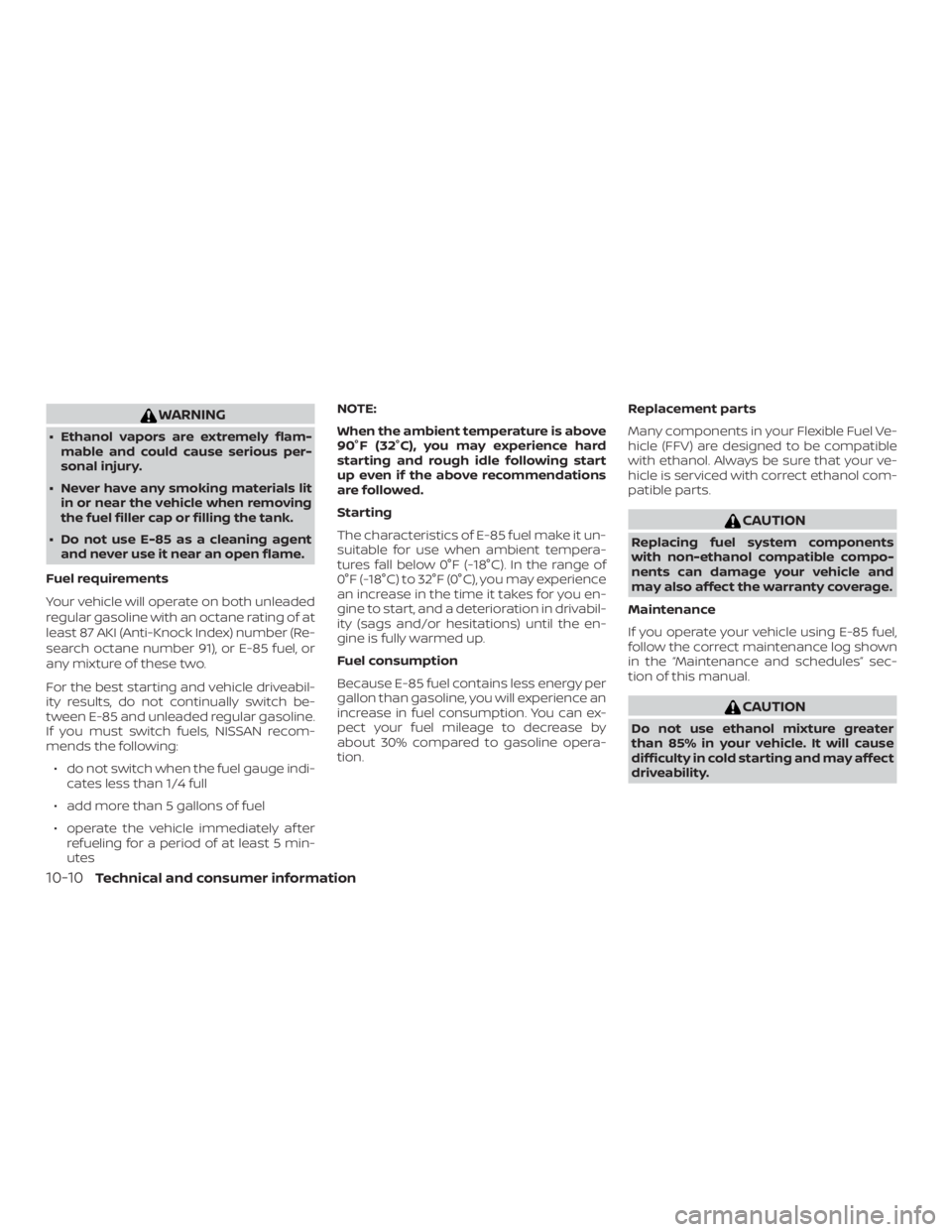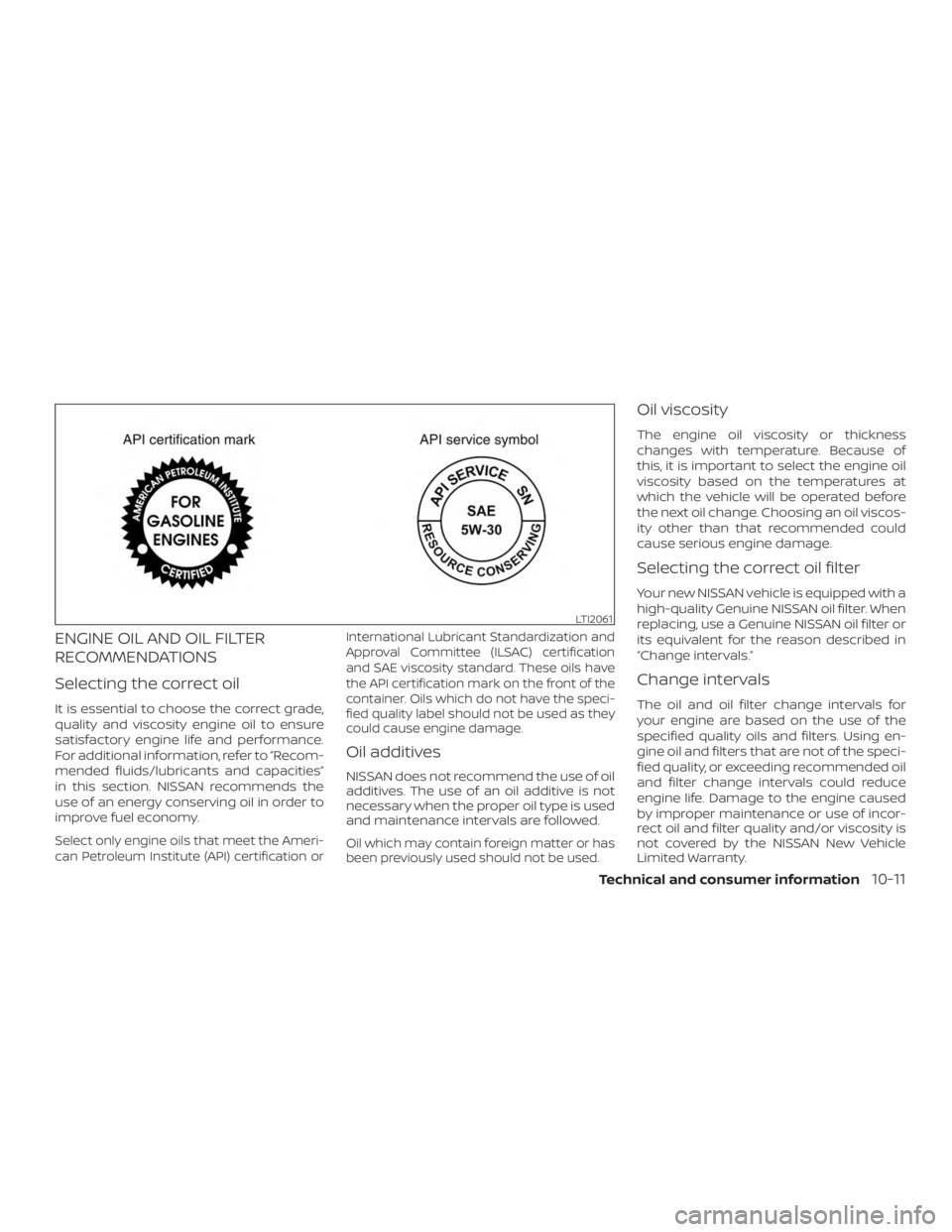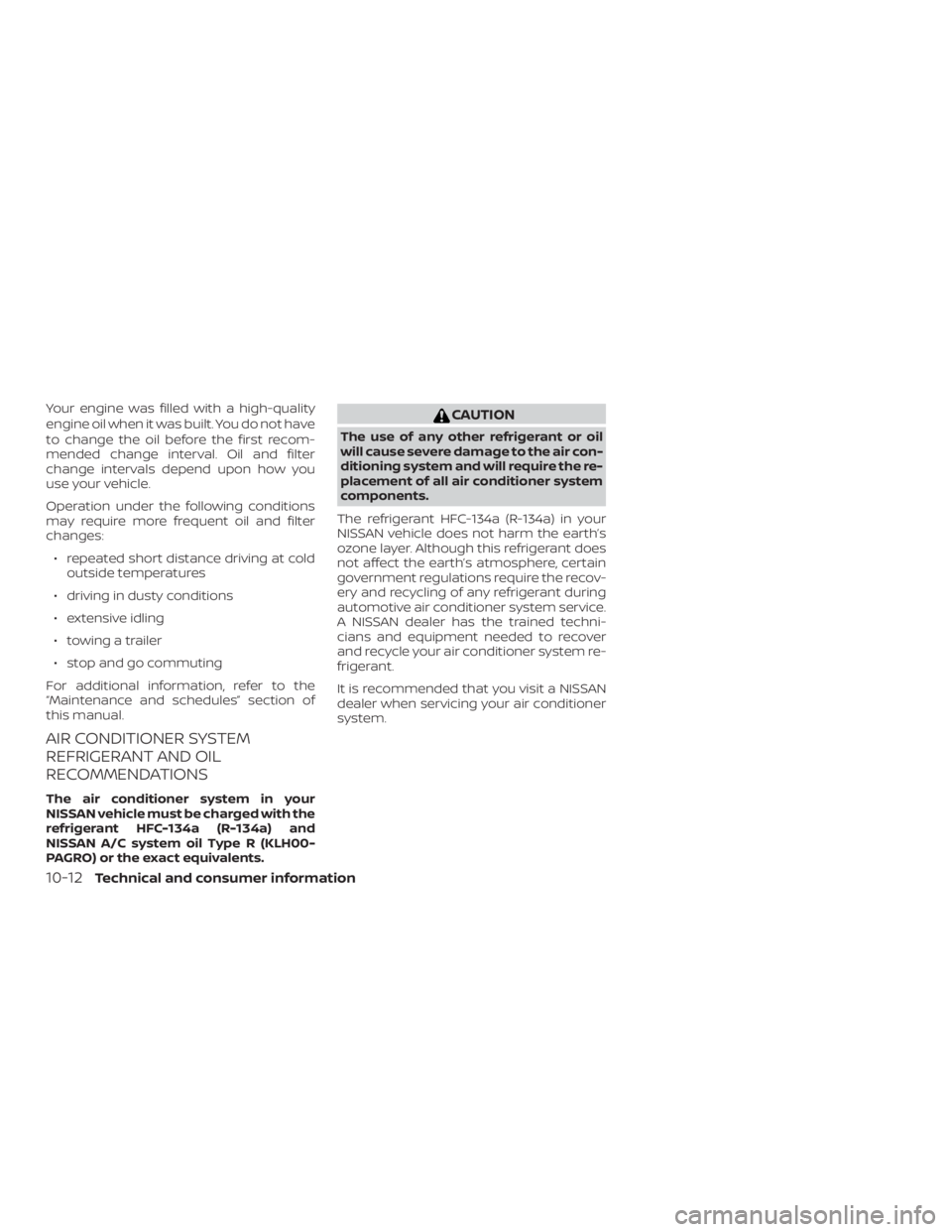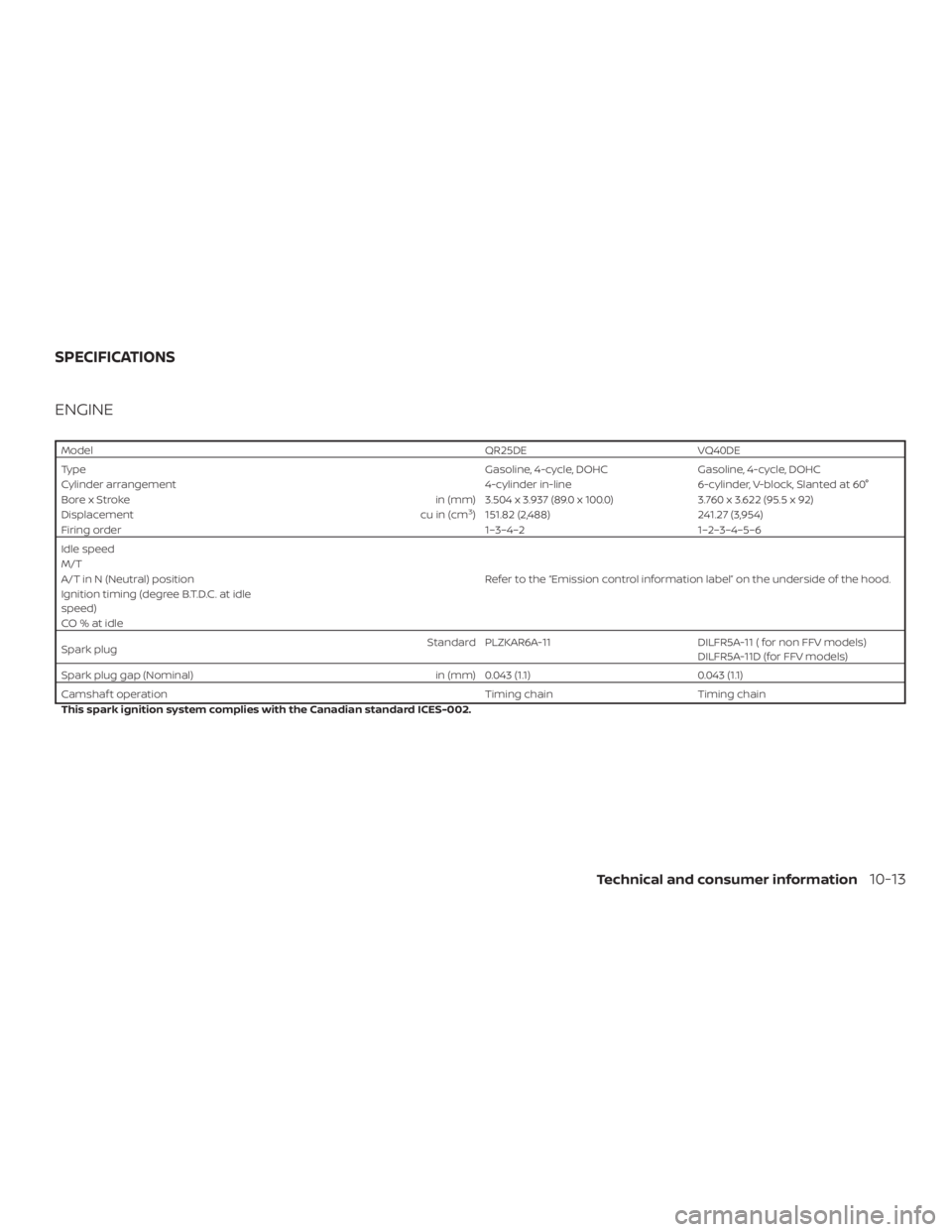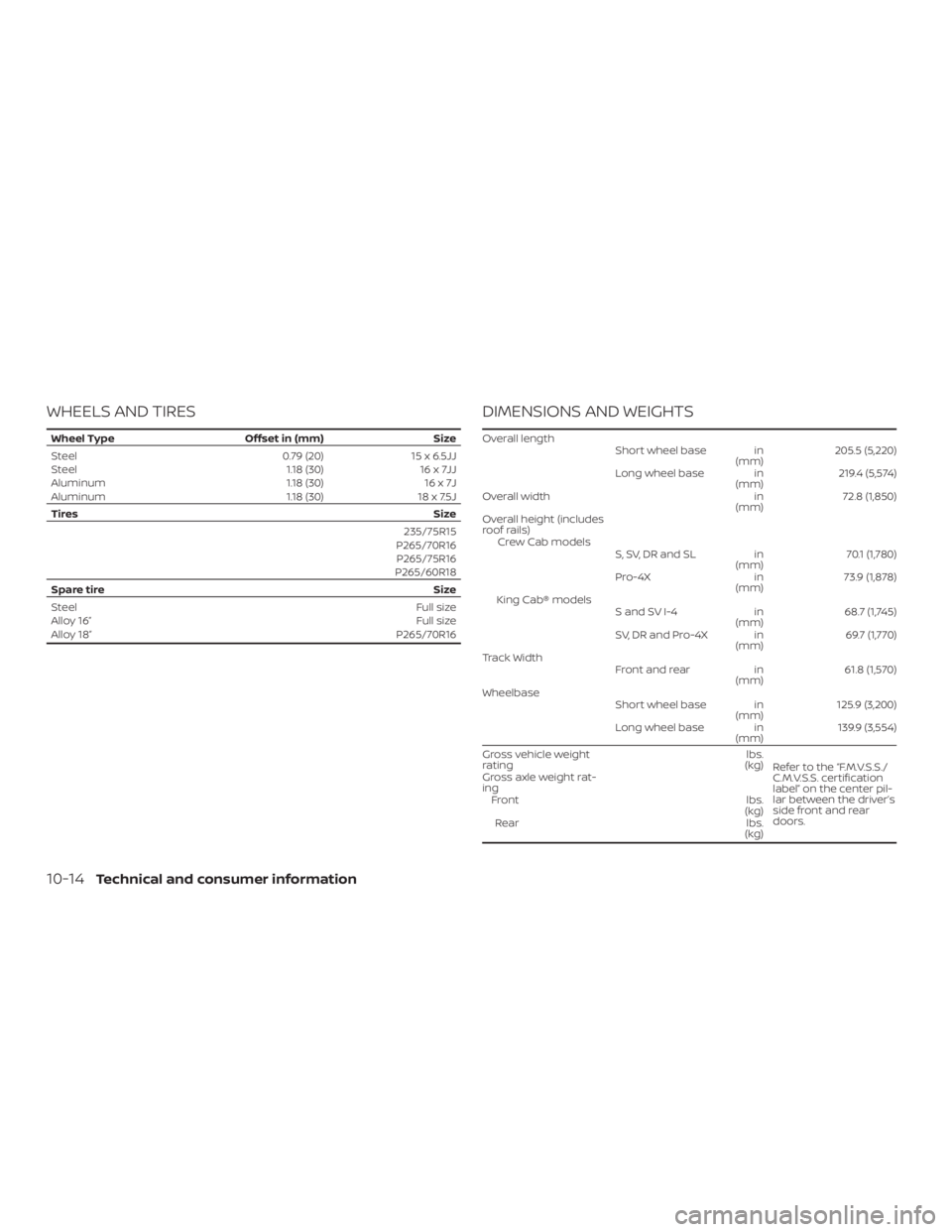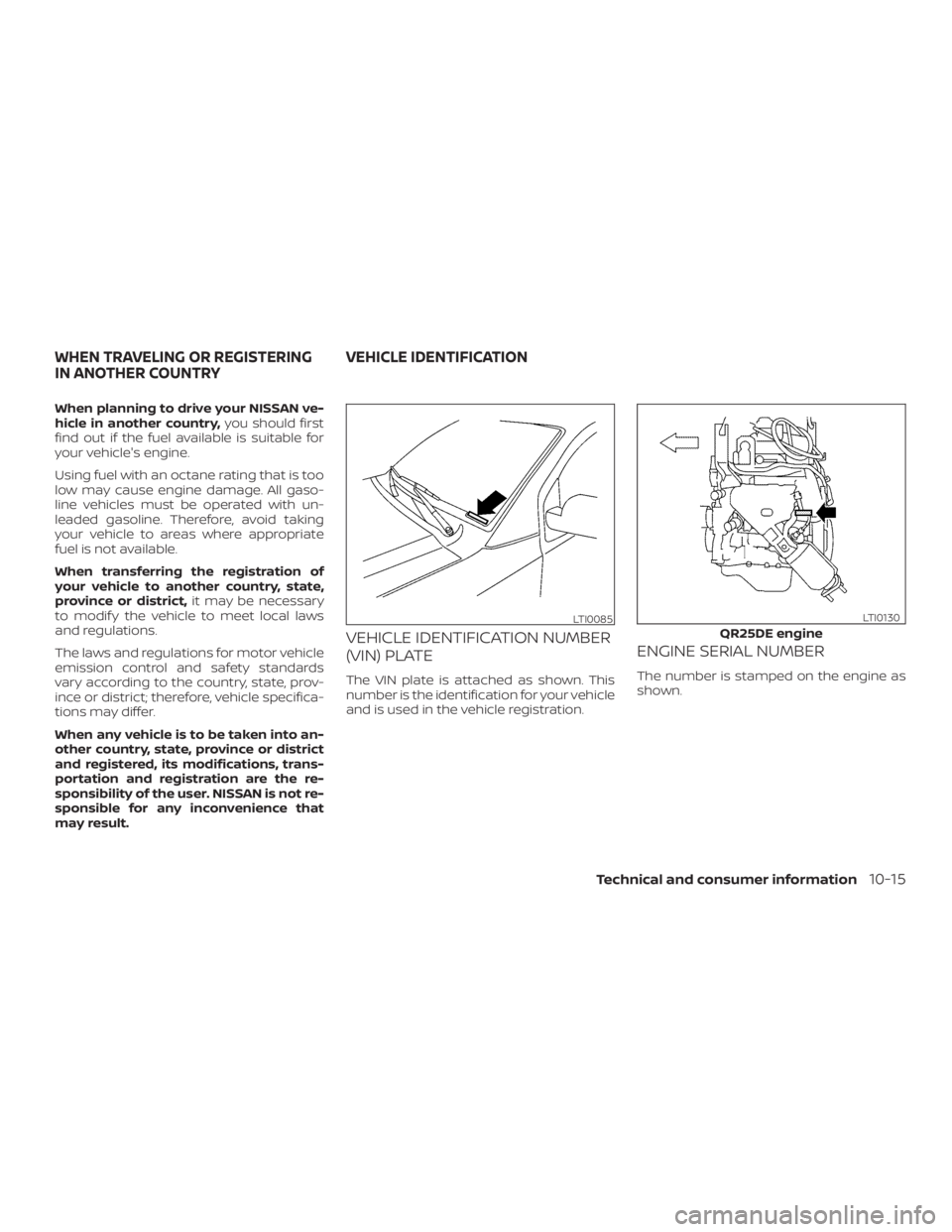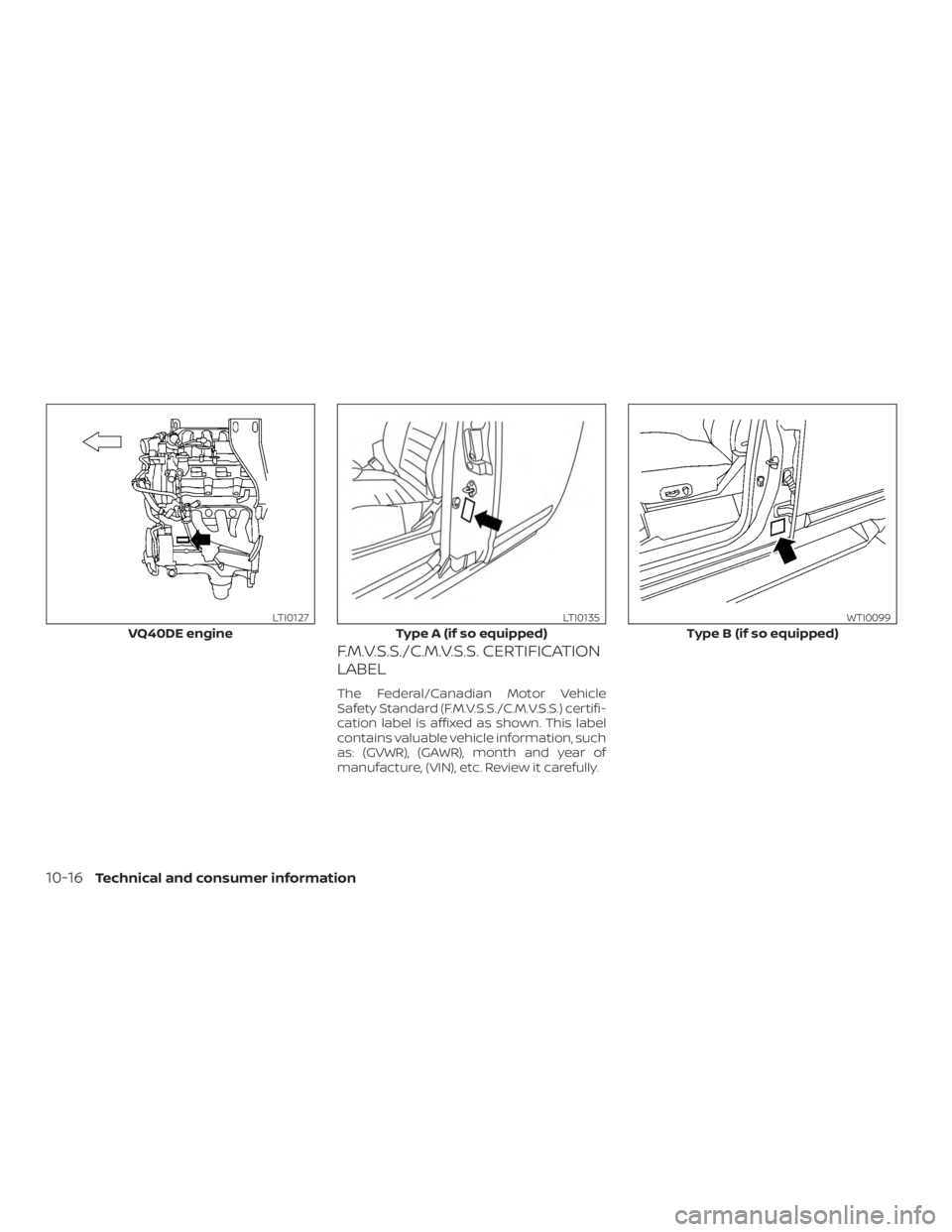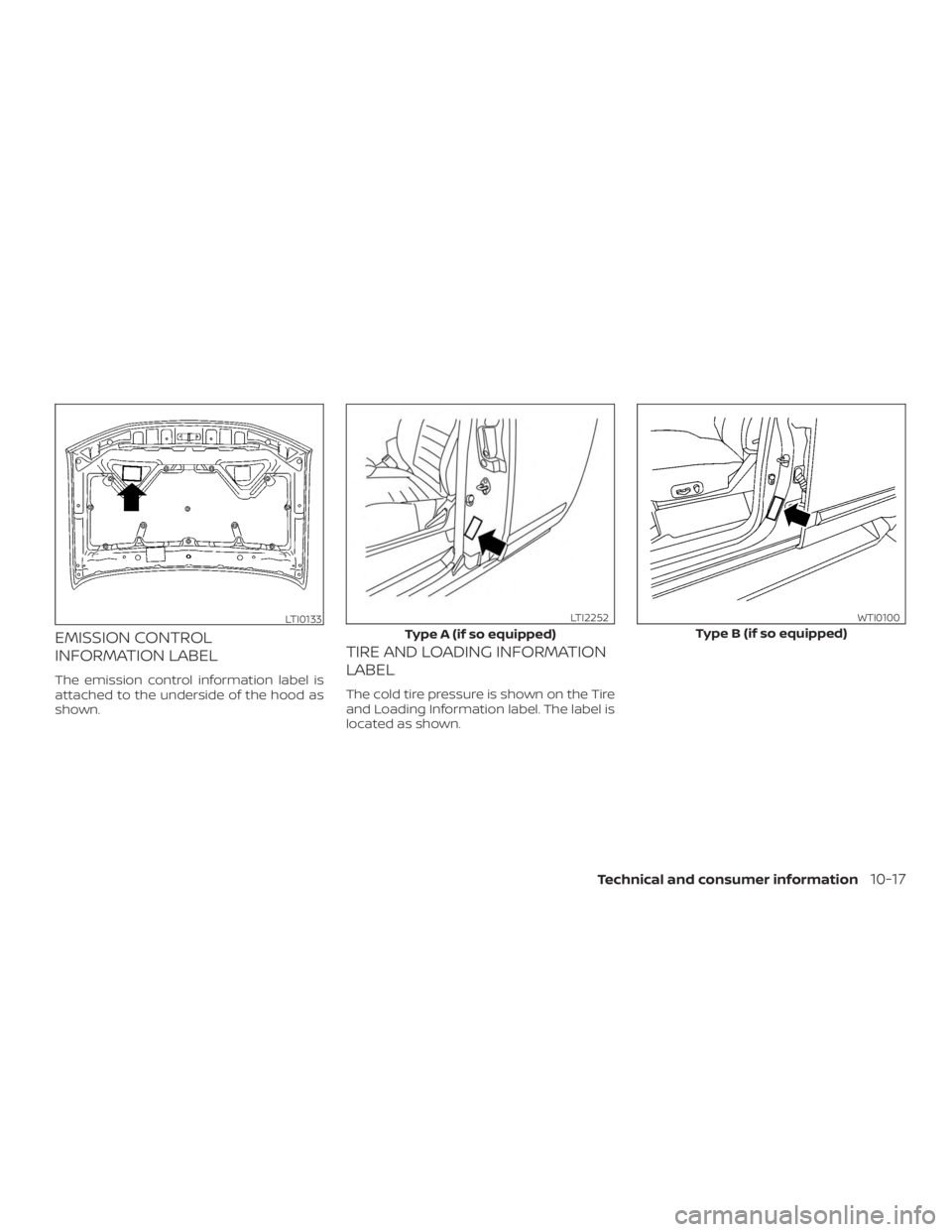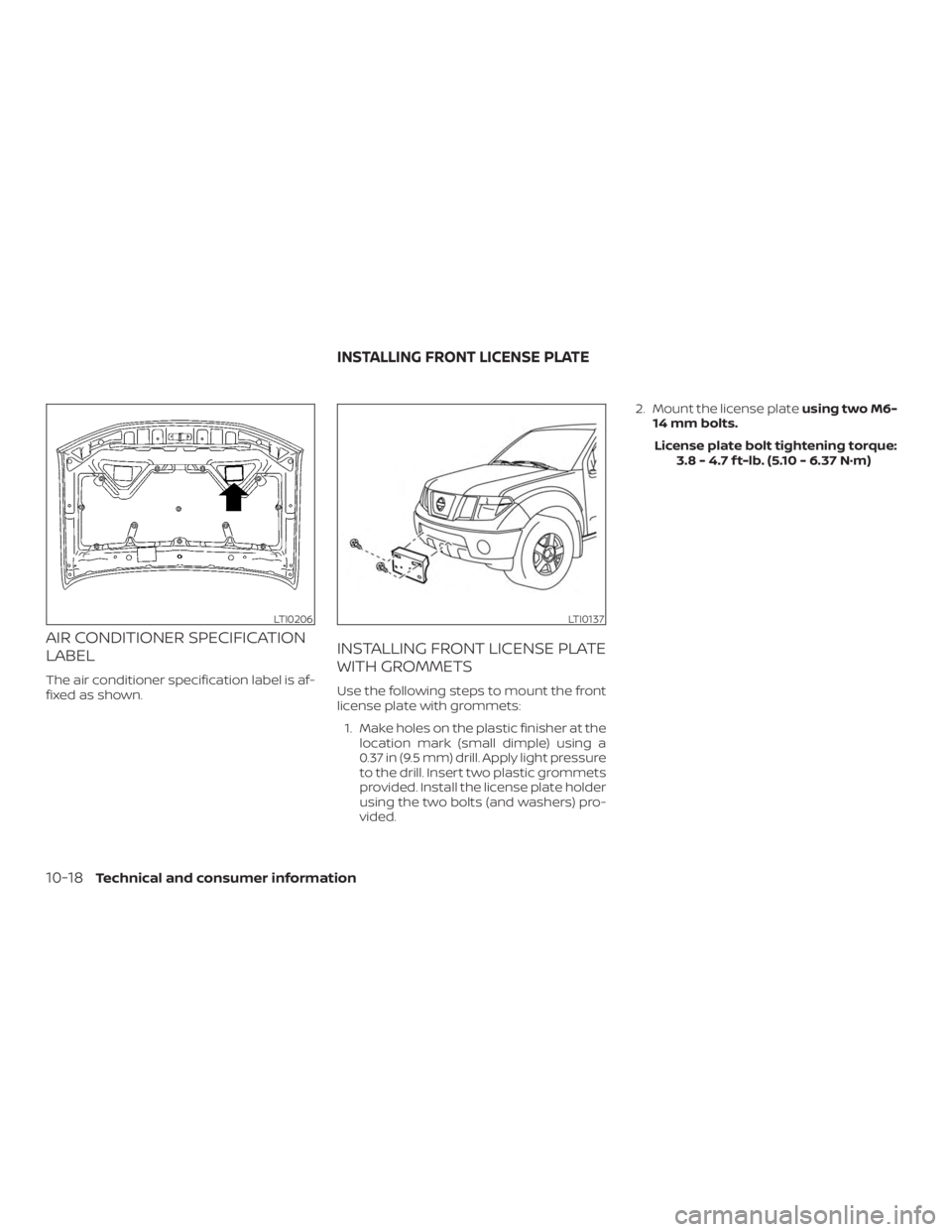Af termarket fuel additives
NISSAN does not recommend the use of
any af termarket fuel additives (for ex-
ample, fuel injector cleaner, octane
booster, intake valve deposit removers,
etc.) which are sold commercially. Many of
these additives intended for gum, varnish
or deposit removal may contain active sol-
vents or similar ingredients that can be
harmful to the fuel system and engine.
Octane rating tips
Using unleaded gasoline with an octane
rating lower than recommended can
cause persistent, heavy “spark knock.”
(“Spark knock” is a metallic rapping
noise.) If severe, this can lead to engine
damage. If you detect a persistent heavy
spark knock even when using gasoline
of the stated octane rating, or if you hear
steady spark knock while holding a
steady speed on level roads, have a
NISSAN dealer correct the condition. Fail-
ure to correct the condition is misuse of
the vehicle, for which NISSAN is not re-
sponsible.Incorrect ignition timing may result in
spark knock, af ter-run and/or overheating,
which may cause excessive fuel consump-
tion or engine damage. If any of the above
symptoms are encountered, have your ve-
hicle checked. It is recommended that you
visit a NISSAN dealer for servicing.
However, now and then you may notice
light spark knock for a short time while
accelerating or driving up hills. This is not
a cause for concern, because you get the
greatest fuel benefit when there is light
spark knock for a short time under heavy
engine load.
FLEXIBLE FUEL VEHICLE (FFV) FUEL
RECOMMENDATION (if so
equipped)
Your vehicle is designed to use (E-85) Fuel
Ethanol, “Regular” unleaded regular gaso-
line or any percentage of the two fuels
combined.
U.S. government regulations require Fuel
Ethanol dispensing pumps to have a
small, square, orange and black label
with the common abbreviation or the
appropriate percentage for that region.
WARNING
∙ Ethanol vapors are extremely flam-mable and could cause serious per-
sonal injury.
∙ Never have any smoking materials lit in or near the vehicle when removing
the fuel filler cap or filling the tank.
∙ Do not use E-85 as a cleaning agent and never use it near an open flame.
Fuel requirements
Your vehicle will operate on both unleaded
regular gasoline with an octane rating of at
least 87 AKI (Anti-Knock Index) number (Re-
search octane number 91), or E-85 fuel, or
any mixture of these two.
For the best starting and vehicle driveabil-
ity results, do not continually switch be-
tween E-85 and unleaded regular gasoline.
If you must switch fuels, NISSAN recom-
mends the following: ∙ do not switch when the fuel gauge indi- cates less than 1/4 full
∙ add more than 5 gallons of fuel
∙ operate the vehicle immediately af ter refueling for a period of at least 5 min-
utes NOTE:
When the ambient temperature is above
90°F (32°C), you may experience hard
starting and rough idle following start
up even if the above recommendations
are followed.
Starting
The characteristics of E-85 fuel make it un-
suitable for use when ambient tempera-
tures fall below 0°F (-18°C). In the range of
0°F (-18°C) to 32°F (0°C), you may experience
an increase in the time it takes for you en-
gine to start, and a deterioration in drivabil-
ity (sags and/or hesitations) until the en-
gine is fully warmed up.
Fuel consumption
Because E-85 fuel contains less energy per
gallon than gasoline, you will experience an
increase in fuel consumption. You can ex-
pect your fuel mileage to decrease by
about 30% compared to gasoline opera-
tion.
Replacement parts
Many components in your Flexible Fuel Ve-
hicle (FFV) are designed to be compatible
with ethanol. Always be sure that your ve-
hicle is serviced with correct ethanol com-
patible parts.
Your engine was filled with a high-quality
engine oil when it was built. You do not have
to change the oil before the first recom-
mended change interval. Oil and filter
change intervals depend upon how you
use your vehicle.
Operation under the following conditions
may require more frequent oil and filter
changes:∙ repeated short distance driving at cold outside temperatures
∙ driving in dusty conditions
∙ extensive idling
∙ towing a trailer
∙ stop and go commuting
For additional information, refer to the
“Maintenance and schedules” section of
this manual.
AIR CONDITIONER SYSTEM
REFRIGERANT AND OIL
RECOMMENDATIONS
The air conditioner system in your
NISSAN vehicle must be charged with the
refrigerant HFC-134a (R-134a) and
NISSAN A/C system oil Type R (KLH00-
PAGRO) or the exact equivalents.
